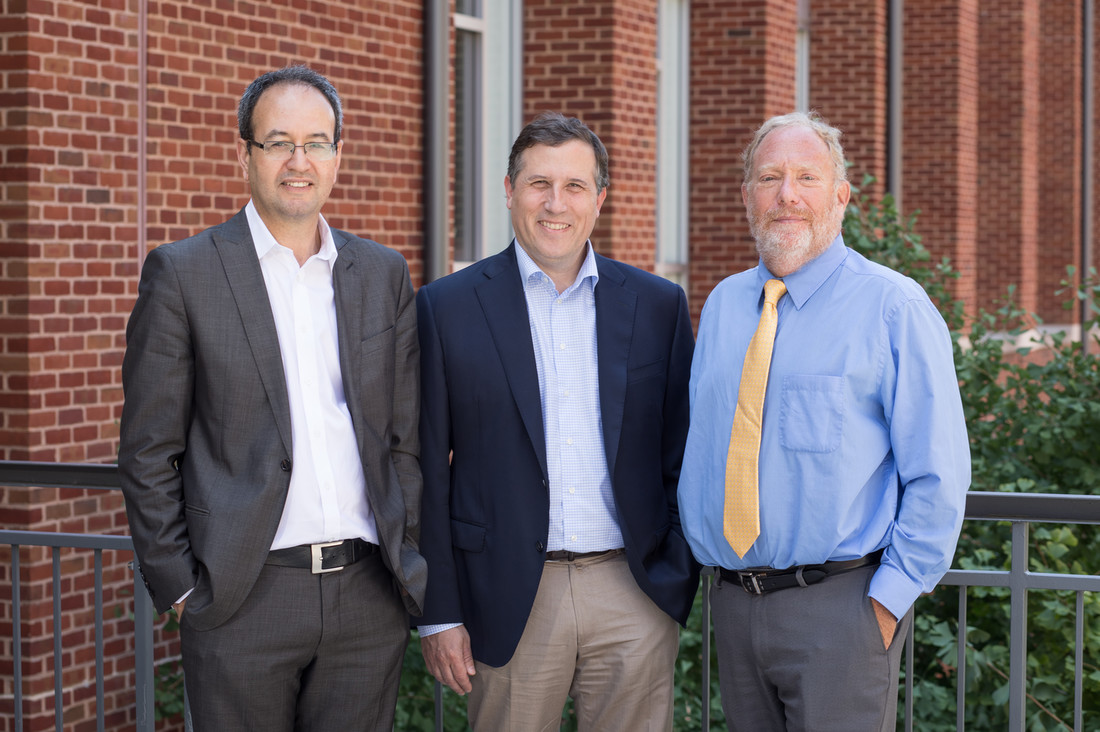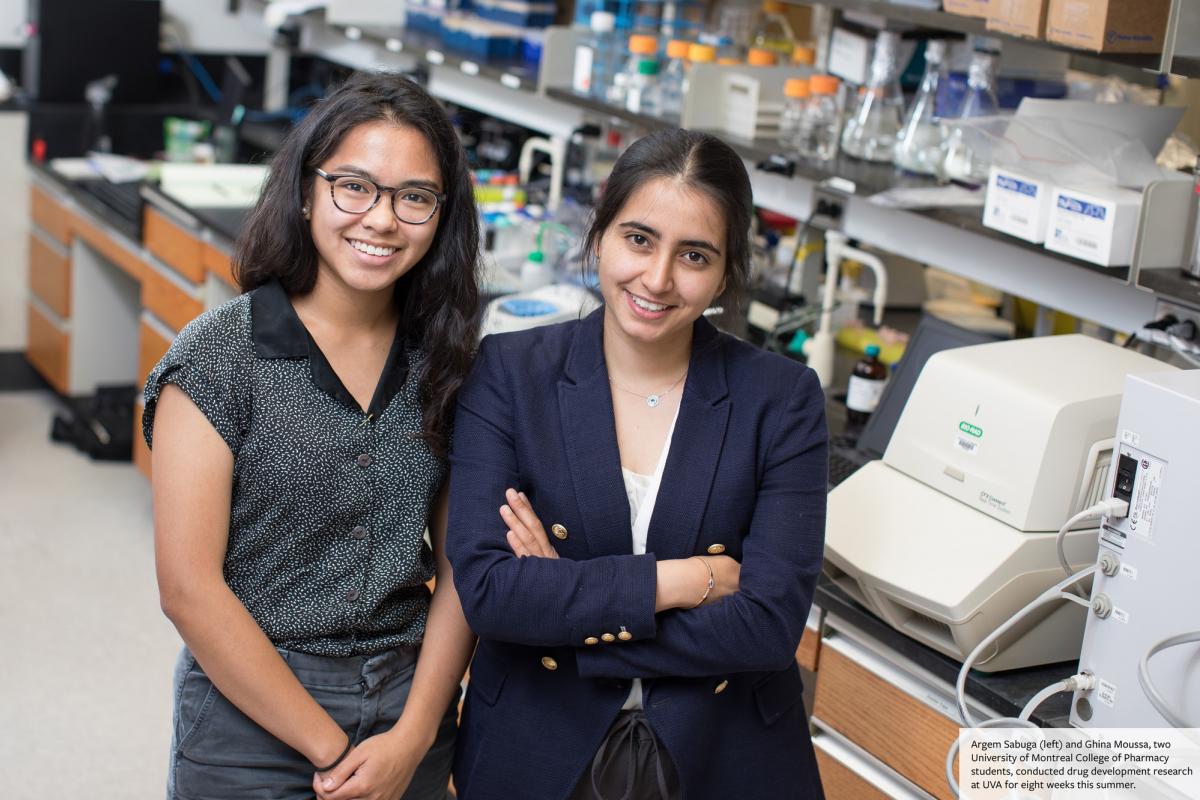On a Mission
Imagine being a student and undertaking research with the potential to change thousands of lives. That’s the opportunity that brought Ghina Moussa and Argem Sabuga, two University of Montreal College of Pharmacy students, to UVA for eight weeks this summer. Their charge? Take an existing drug used for a common chronic disease—a drug that is very expensive—and help to chemically validate a new generic drug molecule designed to perform the same task at a lower cost.
The students were part of UVA’s NanoSTAR Undergraduate Summer Research Program, conducted in the labs of Mark Kester, PhD. The science of nanotechnology uses the tiniest possible particles to deliver a drug directly to cells in a very precise manner. Moussa and Sabuga used similar chemical principles in working with larger, micro particles, commonly used for drug delivery, which brought the lab an opportunity to develop a whole new expertise.
In addition to Kester, faculty advisors and graduate students from UVA‘s School of Engineering and Applied Sciences, School of Medicine, and the College of Arts and Sciences helped to mentor the young students.
“We ran all over the place and worked with lots of different people,” says Sabuga. “Part of the point was to collaborate. Everybody increased their knowledge scientifically and learned how to communicate and manage many parts of a project at once.”
Moussa and Sabuga were both selected through a competitive application process and had never worked together before. With guidance from their UVA mentors, they developed their entire process, specific goals, and protocol, taking into account the limited number of FDA guidelines.
“UVA was a perfect place for this work because you have the high-tech, new machines, the facilities, and the experts who know how to use them—all in one institution,” says Moussa. “And you have the great leadership of Dr. Kester to link all of these together.” According to Dr. Kester, “Our goal for these students was to offer hands-on experience that will influence their future work and careers. This is more than just a research experience. We provide a nurturing and provocative environment that takes full advantage of UVA’s unique resources.”
Although the students worked within an academic environment, their work is part of a real-life project underway at Pharmascience Canada, a member of nanoSTAR’s Academic Industrial Partnership.
“Part of the value of this program is giving the students real-life experience,” says Pharmascience CEO David Goodman, PhD. “A project like this shows what it’s actually like to work in drug research and development. It also shows how industry and academia can work hand-in-hand. This experience showed us how the nanoSTAR program could help our development program by using cutting-edge expertise and resources that we would not normally employ. Having seen what we produced, we certainly are going to increase our engagement.”

Goodman, who earned his doctorate in pharmacology at UVA in 1993, funded the University of Montreal/UVA summer student research exchange program in nanotechnology. His pledge will continue to support additional students over the next few summers.
For Moussa and Sabuga, the summer was life-changing.
“I wasn’t expecting it to be so hard,” says Sabuga. “In research, you don’t always get what you expect, but everything you learn makes you stronger. For the most part, I already understood the theories behind these techniques, but actually applying them in a lab context is different. That’s why I really appreciated the whole experience—because it made theoretical concepts more understandable and showed their importance, which you wouldn't necessarily understand if you had only learned them in class.”
“Through research, you can improve things in the clinic,” adds Moussa. “In the clinic, it’s a lot harder to make those big changes.”
The students will continue their project back in Montreal. For now, Moussa and Sabuga are thrilled with their summer accomplishments, and look forward to leveraging this research experience in their future academic and industrial endeavors.
“I can’t believe we got so much done in such a short time,” says Moussa. “We were able to employ 10-12 methods all in one place. This experience really gives us an edge for the future.”

